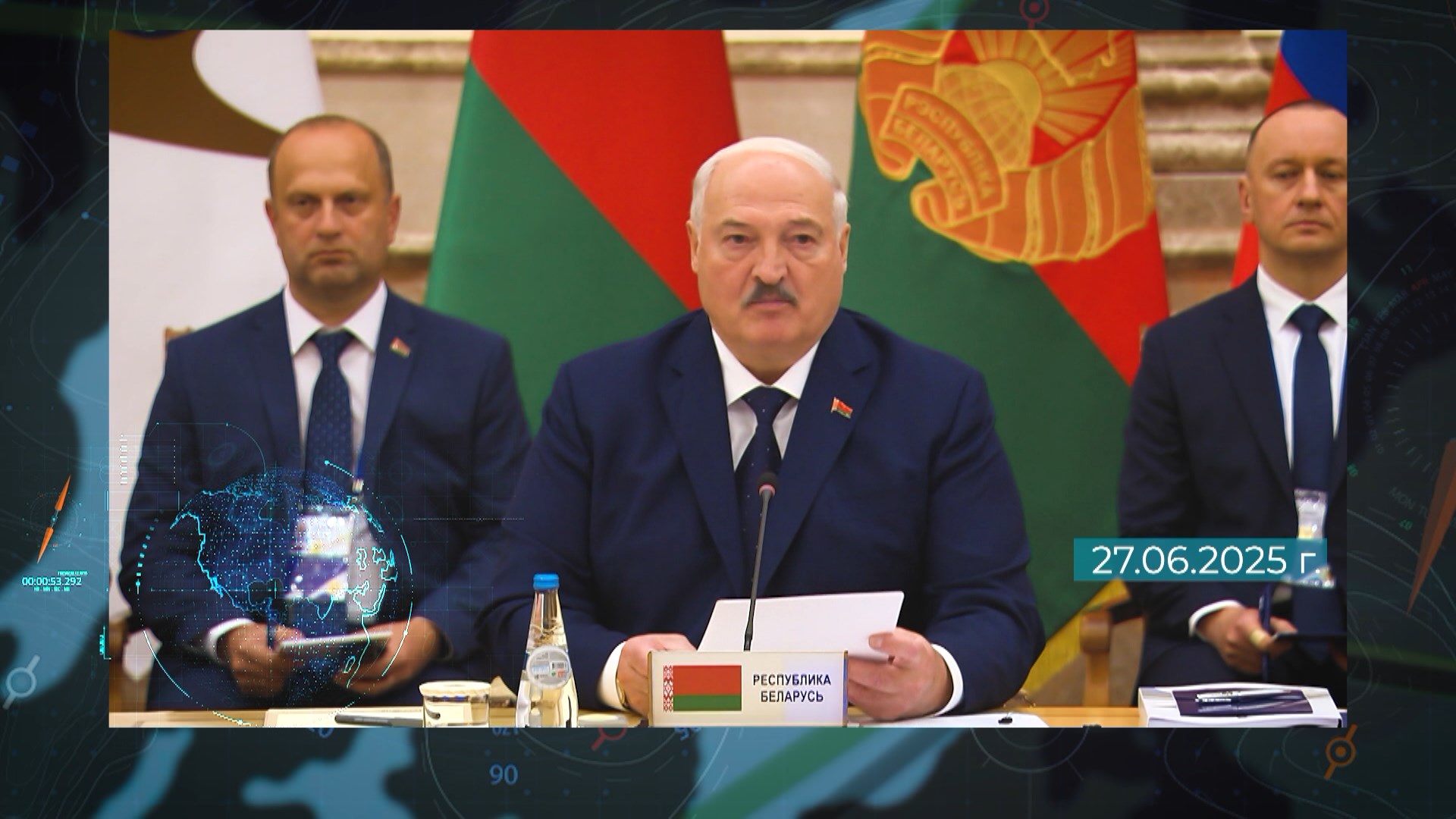3.71 BYN
2.97 BYN
3.43 BYN
What Could Be the Consequences of Western Indifference to Strikes on Iran’s Nuclear Facilities?
Belarusian independence is the most precious value for the country and every citizen. Yet, not everyone is pleased with our sovereignty. A hybrid war has been unleashed against our nation. Preventing it from escalating into a full-scale conflict is a task set before our military.
Today, this mission is complicated by sometimes inexplicable Western reactions to the most acute threats, including nuclear ones. The core of these new challenges and each individual's responsibility for maintaining peaceful skies are explored in the project "Disposition."
A recent NATO summit, which was meant to answer many pressing questions, instead generated new ones, adding to the overall uncertainty. Kiev remains in a state of stagnation just beyond NATO’s doorstep, while the fog continues to produce statements from U.S. leader Donald Trump — but that is no longer news.
For us, the situation is not entirely unclear: there will undoubtedly be continued troop concentrations from NATO countries near Belarus. This, too, is not new. Perhaps the only recent anomaly is the Western complacency regarding strikes on Iran’s nuclear facilities. Somehow, a terrifying normalcy seems to have settled around the possibility of a repeat of the Chernobyl tragedy. The desensitization to danger appears to have transformed Western perceptions.
And given the reaction, the Iranian precedent could be adopted by others, for example, Kiev. Would anyone be surprised by attacks on nuclear power plants?

Alexander Lukashenko, President of Belarus:
"Recent strikes on Iran’s nuclear facilities, which are under IAEA oversight, dangerously violate international law, including the Non-Proliferation Treaty and the Geneva Conventions of 1949. I won’t even mention the feelings such actions evoke in Belarus — a country that suffered greatly from the Chernobyl disaster. Back then, radioactive fallout was detected even in the UK, Germany, and Sweden. Do they think it won’t happen now? Especially to a country that has already experienced such deeds."
All possible and impossible military factors, in any combination, must be considered as we strengthen security. This is the responsibility of the current graduates of the General Staff faculty. These officers are equally adept at managing large units, developing and implementing rearmament strategies, and working with artificial intelligence. During training sessions, students practically examined various combat tactics used in numerous conflicts.
"The training process is dynamic; we study contemporary conflicts around the world and quickly incorporate that experience into our training. Today’s graduates of the General Staff faculty are skilled at analyzing the current situation, including around our own country, and possess the knowledge necessary to properly prepare our troops, taking modern realities into account," emphasized Andrey Gorbatenko, head of the Belarusian Military Academy.
For the troops, the key principle remains: "Do as I do." Regardless of rank or position, commanders must thoroughly understand the professions and weapons of their subordinates. Recently, during exercises, battalion commanders worked as drivers of mechanized infantry, tank gunners, and operators of armored personnel carriers and BTRs. Victory on the battlefield, as recent events in Ukraine demonstrate, often depends on individual training.
Valery Bulygo, Commander of the Air Assault Brigade:
"Under no circumstances should a commander, regardless of his position, shy away from the weapons under his command. Each of us must know them well — how to operate them correctly and efficiently. It is our personnel on the ground, armed with this equipment, who fight in battle, and they must be trained to use these systems effectively."
This summer vividly illustrates the defense system Belarus is building. We can afford such a luxury in strengthening our security — diplomacy. And Minsk is confidently advancing in this direction. The recent forum, the SCO defense ministers' meeting in China — where Belarus participated for the first time as a full member — and negotiations with military leaders from China and India are assets and achievements that few countries possess.
But these assets would not exist if every soldier and officer did not give their best during drills and exercises, demonstrating that we are capable of defending our homeland.















